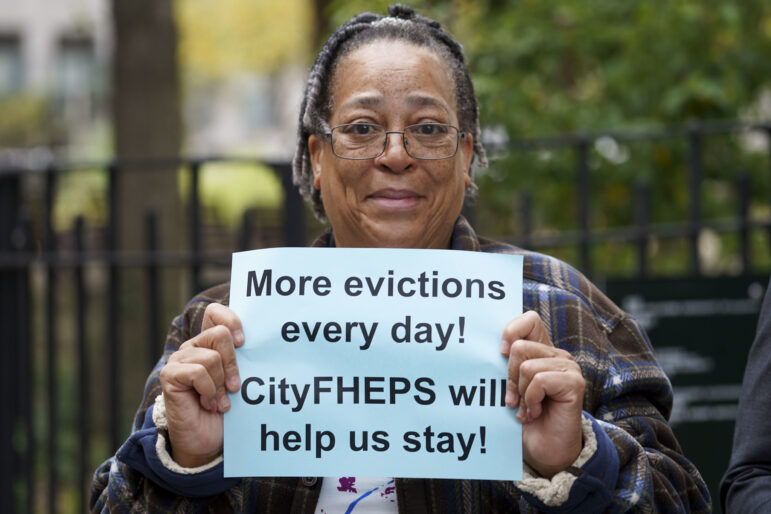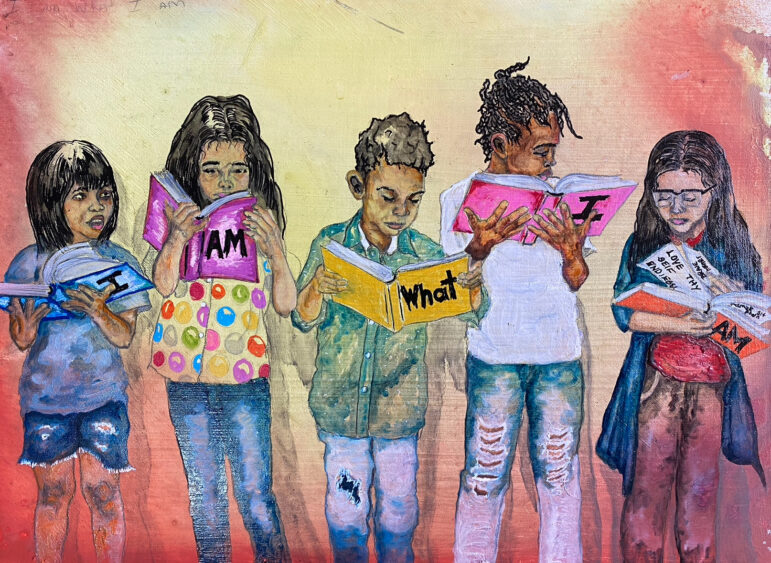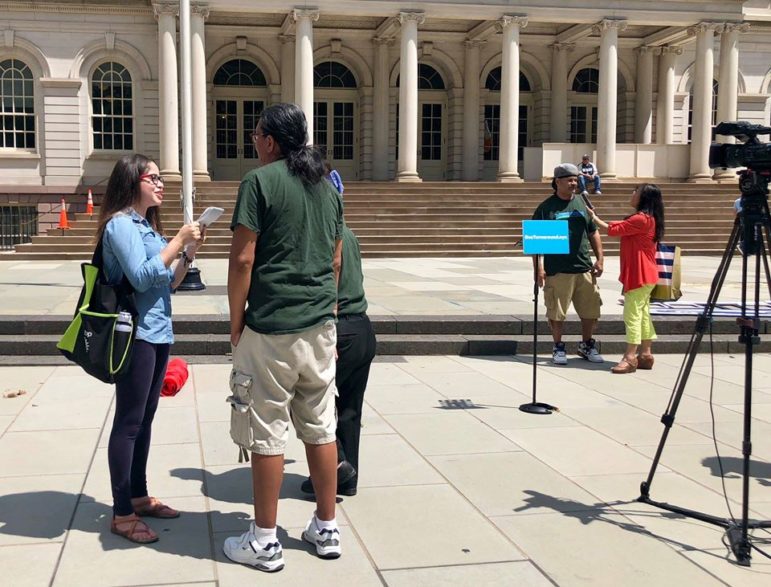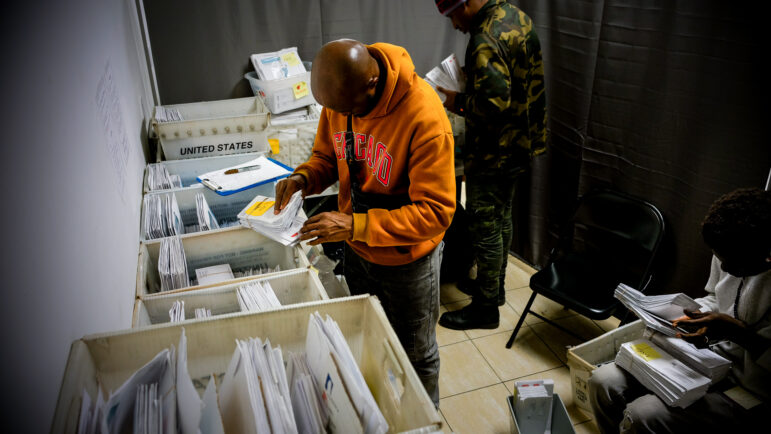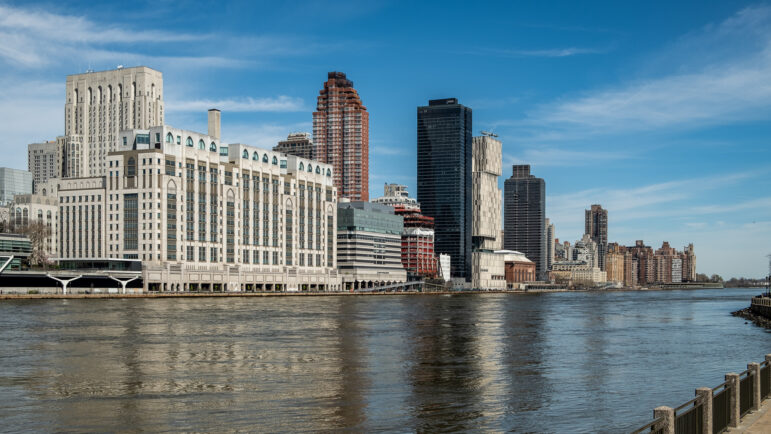“Call us a little off our rockers,” says Bryan Pu-Folkes, president of New Immigrant Community Empowerment (NICE), “but we try to do as much work as possible and get less sleep.” He speaks into his cell phone above the rhythmic whirring of exercycle spokes. After his evening workout at the gym, it’s back to the office for a night of strategizing on how to bring different immigrant groups together in the city’s new atmosphere of economic shortfalls and racial paranoia.
Since the terrorist attacks of September 11, grassroots community groups across the city have been following similarly jam-packed schedules as they scramble to maintain their missions while taking on new programs in response to their neighborhoods’ changing needs.
No one is quite sure how sustainable these new efforts will be. Individual and corporate donors are increasingly redirecting their philanthropic contributions to relief efforts, and city and state budgets are facing severe cuts. “We can’t really plan until we have a pulse,” says Fran Barrett of the Community Resource Exchange.
However, most foundations, Barrett adds, have voiced an unwavering commitment to the grassroots causes they have funded for years. The North Star Fund, for one, has established a 9.11 Activist Fund to give community organizing groups small grants for emergency needs and sustained support for mid- to long-range planning efforts. As of late October, the Fund had doled out $2,500 in emergency grants ($500 to Women for Afghan Women and $2,000 to Downtown Community Television for its upcoming series “America at War, Then and Now”). The foundation hoped to raise another $50,000 at a November 8 fundraiser.
Meanwhile, community groups work to keep up with the times.
- For more than a year, NICE has focused most of its resources on coordinating the Government Access and Accountability Campaign, an effort to get candidates for city office to commit to holding regular town hall meetings, conducting surveys of their districts’ needs and publicizing reports on how tax dollars are spent. Once Islamic fundamentalists were named as perpetrators of the Trade Tower attacks, however, the all-volunteer organizing group began reaching out to young immigrants to help them deal with and combat the bias incidents that were cropping up around the city.
“We decided that since we’re an organization that’s about bringing communities together across racial, ethnic, religious, and cultural lines, there was a void to be filled,” says Pu-Folkes.
From there, a new partnership was forged with the Council for Unity, a nonprofit that teaches community and personal development in over 50 city schools. A quick application for funds to the Citizens Committee of New York produced $500 for a unity rally for teens in Flushing Park. Students from Newcomer High School, the Academy for New Americans and other immigrant-heavy schools read aloud poems and letters, and painted a handful of six-by-nine-foot murals to hang in the state capital and in fire and police departments around the city.
More events, including a youth summit, are also in the works, but Pu-Folkes stresses that none of this can happen without more resources. Already short-handed, the group is now in search of funds to hire a muralist and a coordinator for future rallies. Some good news: In late October, the NICE board brought on two new members and approved the group’s first office, a closet-sized space in Corona.
- Imani House, a small Park Slope-based group, offers support–from English and adult literacy classes to a food pantry–to local Latino families. After September 11, the group’s staff worked with the Commission for Human Rights to develop and post flyers outlining how to legally combat harassment. They reached out to local Arab Americans and asked them to hang the posters in their shops and distribute them at their mosques. “I’ve seen what ethnocentricity can do to tear a country apart,” says Imani Executive Director Bisi Iderabdullah, who lived through the evacuation of Liberia, West Africa, in 1996. She has also shifted the focus of a collaborative program with the New York Civil Liberties Union from juvenile justice to race and policing after the terrorist attacks.
- Asociación Tepeyac de Nueva York, a social service group for newly arrived Mexican immigrants, suspended its after-school, English, and computer classes as well as its volunteer community organizer training for a month following September 11. The new focus: helping its member families and employees–largely undocumented immigrants–who lost jobs or loved ones in the attacks get the financial and emotional support they need. Its staff posted photos and traveled to hospitals and morgues to assist members searching for missing family. “This is kind of a harvest,” says Executive Director Joel Magallán Reyes about the large numbers of people who have come to them for assistance. To continue its efforts, and increase its staff and phone line capacity, the group applied to the September 11 Fund and other foundations for support, but at press time had yet to receive word. Meanwhile, the Asociación has changed the theme of its annual Día del Muerte celebration, scheduled for November 1, to “invisible people.”
- Jews for Racial and Economic Justice had been lobbying the state legislature for a year to repeal the Rockefeller drug laws when the events of September 11 bumped the issue aside and thwarted, at least temporarily, a three-year campaign to get more state money for public schools. Now, the group has put off its biggest annual fundraiser until March to devote “125 percent” of its energies to peace rallies and outreach to mainstream Jewish communities, says Executive Director Andrew Stettner. The long-term base-building efforts to draw Jews of color have been dropped for now, as has JFREJ’s role in the unionizing efforts at a kosher food factory in Williamsburg. Instead, a new partnership is growing with Muslims Against Terrorism, a group formed after September 11, and issues affecting Arab and Muslim Americans have quickly become a centerpiece. Unlike many other small groups, JFREJ’s cash flow seems to be solid for the year: The Tides Foundation recently gave them a $10,000 emergency grant.
- SAKHI for South Asian Women connects victims of domestic violence from New Jersey and the five boroughs with trained caseworker volunteers and offers services like English and computer classes and legal aid. Now, in addition to offering needs assessment to its members, SAKHI is collaborating with the six-month-old nonprofit Women for Afghan Women to develop a high-school curriculum on feminism and violence in South Asian and Afghan communities. To fund these new endeavors, the Third Wave Foundation has chipped in $1,500. Urgent Action donated $3,000, and persuaded the Ms. Foundation to give SAKHI a $5,000 grant. A scholarship program is also in the works, to be established in the name of a longtime volunteer, Swarna Chalasani, who has not been heard from since September 11.
Hilary Russ is a Manhattan-based freelance writer.


